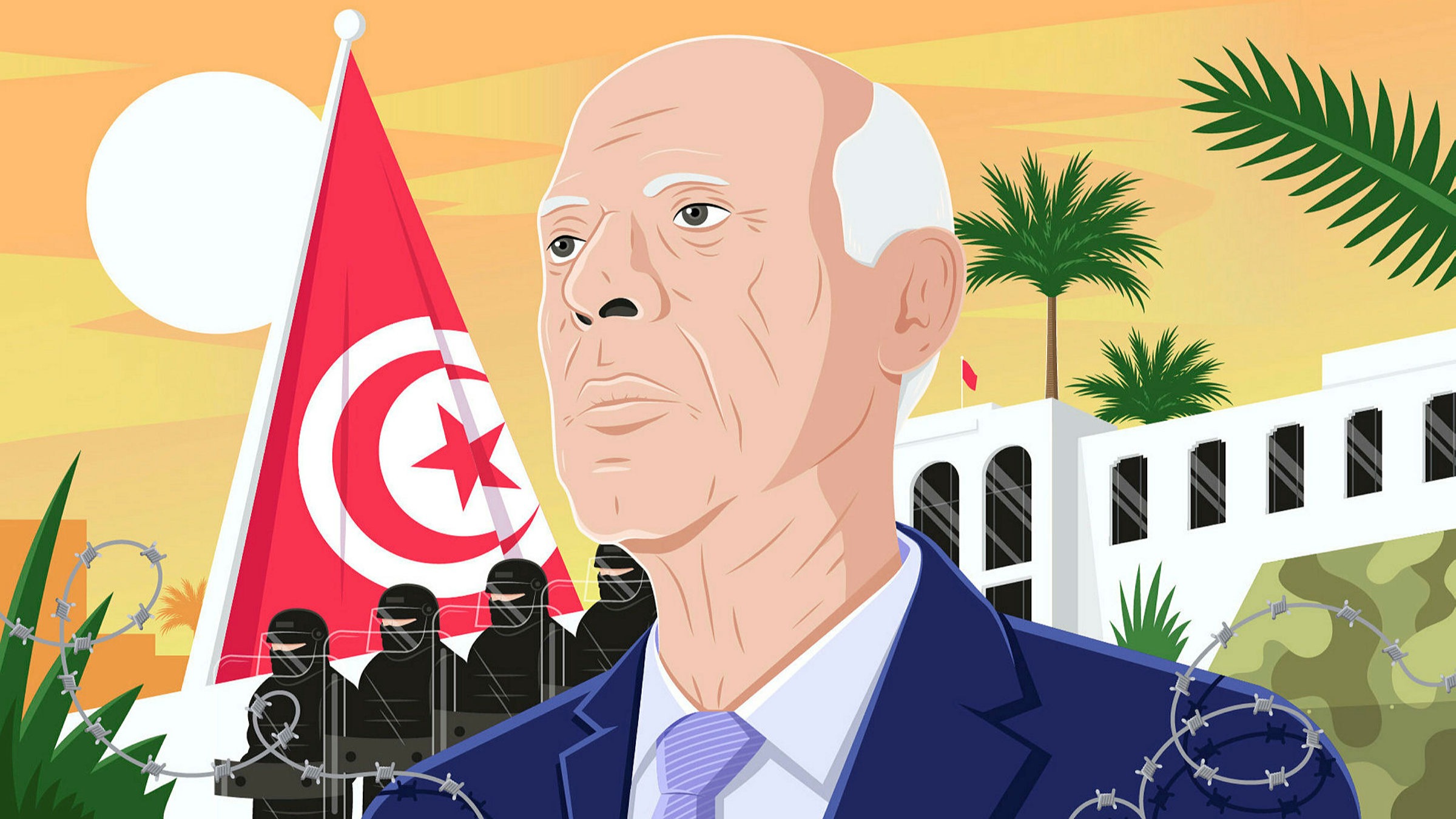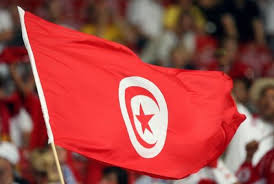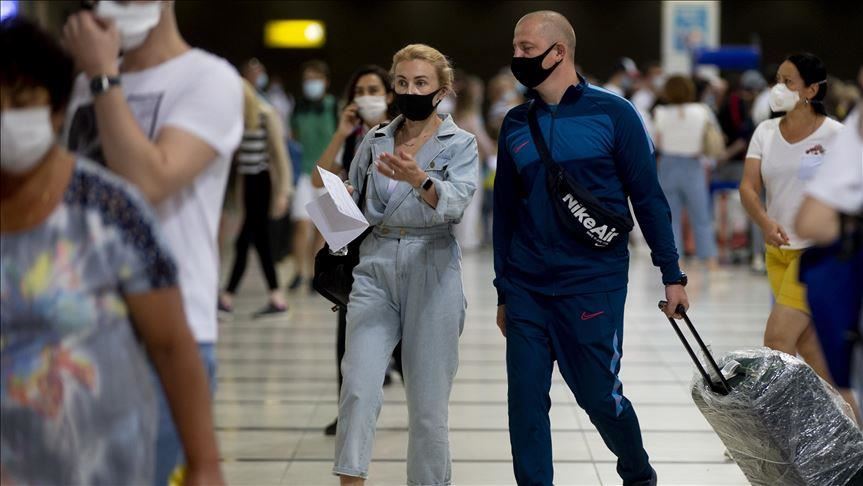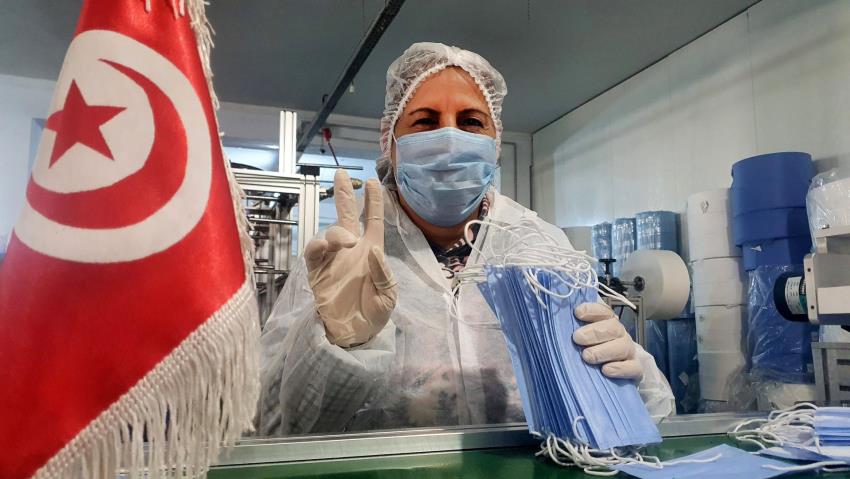The Atlantic Council, the U.S. State Department and Amnesty International have issued scathing reports on the deteriorating human rights situation in Tunisia and sounded the alarm over the escalating repression and prosecution of opposition leaders ahead of upcoming presidential election scheduled for October.
In its analysis on the worsening political crisis in Tunisia, the American think-tank said the upcoming presidential elections are unlikely to be “free and fair” due to ongoing crackdowns on opposition leaders and critics, persistent human rights violations, and the consolidation of power across all three branches of government.
These elections will likely enable further consolidation of power and undo more than a decade of progress in building democratic institutions, warned the Atlantic Council.
What was once deemed the only success story of the 2011 Arab Spring uprisings seems to be becoming yet another disappointment, deplored the author of the analysis.
Elected on an anti-corruption platform in 2019, President Kais Saied initiated consolidating powers in 2021 by unilaterally dismissing then Prime Minister Hichem Mechichi and freezing parliament with military support, said the U.S. Think-tank.
Saied subsequently rewrote Tunisia’s constitution to extend his presidential powers and granted himself the authority to unilaterally dismiss magistrates after he dissolved the Supreme Judicial Council, said the report.
Parliamentary elections he called for had a turnout of just 11.2 pc after opposition parties boycotted them, resulting in the election of mostly unaffiliated politicians close to him.
In 2022, Saied extended his control over the Independent High Authority for Elections (ISIE) by granting himself the power to appoint and dismiss its members, nullifying the ISIE’s independence from the executive.
With all branches of government now under his direct or indirect control, President Saied has eliminated internal obstacles and monopolized all checks and balances, paving the way for an unchallenged run in October, said the expert of the Atlantic Council.
Freedom House downgraded Tunisia’s score from “free” to “partially free,” indicating there is broad consensus among members of the international community that Saied’s actions are illegitimate.
The latest report issued by U.S. State Department on investment climate in Tunisia said the economy of the North African country continues to be heavily impacted by the deepening political crisis after the President concentrated all powers, removed checks and balances on the executive, weakened the parliament. These changes gave Kais Saied enhanced authorities over the judiciary and the legislature.
The parliamentary elections held in 2022 and 2023 with a record lower turnouts lacked legitimacy and fell short of international standards, according to the assessment of International and domestic observers. assessed that elections were technically well-administered but
Under the rule of Saied, the country is suffering from high unemployment & inflation, rising levels of public debt, and shortages of food products, medicines and energy commodities due to external financing challenges.
For its part, Amnesty International has denounced crackdown on political opponents and called on Tunisian regime to release political detainees and prisoners.
Tunisian authorities stepped up their crackdown on the political opposition on 13 July 2024 with police arresting Ennahdha Secretary General, Ajmi Ouirimi, in Mannouba governorate along with two other party members, Mohamed Ghanoudi and Mosaab Gharbi. They remain detained without charge.
“It is outrageous to see the Tunisian authorities trampling on people’s rights in their bid to undermine the political opposition”, said AI Regional Director for North Africa.
“These arrests are particularly concerning ahead of the upcoming presidential elections. Tunisian authorities must inform Ajmi Ouirimi, Mohamed Ghanoudi and Mosaab Gharbi of the reason of their arrest and grant them immediate access to legal counsel”, said Amnesty International official.
The Tunisian authorities “must immediately release them unless they are charged with a recognized criminal offence, in line with international standards. Failing to do so would indicate this is yet another politically motivated case intended to silence dissent”, underlined Amnesty International.
“The Tunisian authorities’ disrespect for human rights and their crackdown against opponents must stop. From arbitrary arrests of critical journalists, lawyers, activists and politicians to the systematic undermining of judicial independence, authorities must reverse this repressive path”, said AI regional director.
Over the past year, Tunisian authorities escalated their crackdown on dissent, using unfounded charges against high-profile opposition figures and other critics. Several members of political opposition groups were arrested, including several high level members of the Ennahdha party such as their chief Rached Ghannouchi, who has been in detention since 18 April 2023, Noureddine Lebhiri, and others who are facing politically motivated charges.
Presidential elections are set to take place in Tunisia on 6 October 2024. Human rights in Tunisia continued to deteriorate almost three years after President Kais Saied’s power grab. Since then, institutional safeguards for human rights protection were dismantled, the judiciary has lost guarantees for its independence and courts have increasingly targeted critics of the president using repressive laws, as respect for the right to freedom of expression has shrunk. Offices of civil society organizations have been raided, with their members arrested or facing prosecution.



